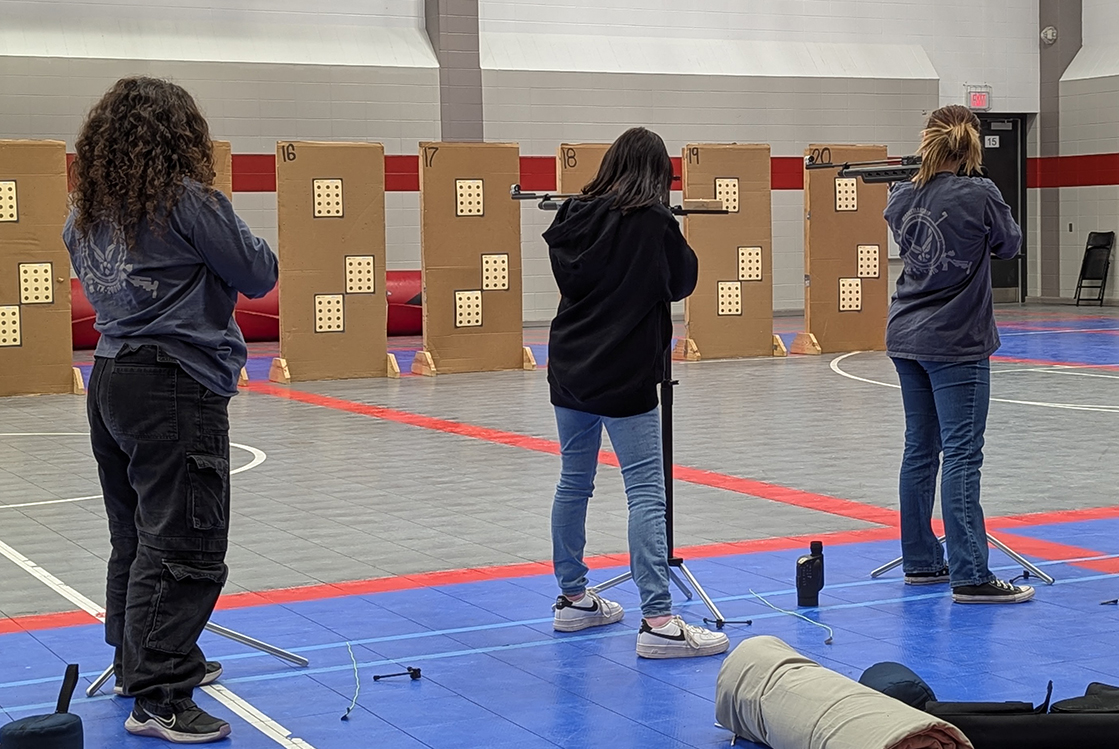Playing sports, riding roller coasters, drinking caffeine, all things most teenagers take for granted. But for junior Jaci Siegert, each of these poses a potentially-deadly risk.
Jaci has a condition called Prolonged QT Syndrome, meaning her heart does not pump enough blood normally. People suffering from Prolonged QT Syndrome experience different triggers, Jaci’s being exercise. Even without the trigger, at any given moment, she could pass out, have a seizure, fall into a coma, or die. To help prevent this from happening, Jaci has a loop recorder implanted in her chest, which syncs to her phone and records her heartbeat.
In addition to having a heart problem, Jaci also suffers from a blood disease known as Von Willebrand Disease.
“My blood doesn’t clot, so I bruise easily and have to be careful if I cut myself,” Jaci said. “I take medicine to keep me from bleeding too much and a nasal spray I’m supposed to take before surgery. It’s not more inconvenient than my heart problem, I have to take medicine every day anyway.”
However, instead of being upset about her condition, she maintains a happy, positive outlook on the world.
“Jaci is really upbeat and fun,” journalism teacher Rebecca Dominy said. “The way she approaches life helps her deal with her condition. Though dealing with her heart and blood disease can be taxing mentally and emotionally, she does a good job working through it.”
Jaci is not shy about her condition, fully embracing it and frequently making jokes about it.
“We make a lot of morbid jokes, and it’s okay,” Jaci said. “It’s kind of fun to find people that don’t take it so seriously and they can joke about it with me because it makes me feel better.”
Jaci’s boyfriend junior Oliver Smith sees how other people influence Jaci’s attitude.
“She has a very positive outlook on life in general,” Oliver said. “She never misses out on an opportunity to make someone laugh.”
In her journalism class, Jaci frequently makes jokes about her heart problem and high risk of death and even encourages others to do the same. However, the class still understands the severity of her condition and remains sensitive to her problem.
“The newspaper staff is a family,” Dominy said. “Out of context, the things we say could sound bad to an outsider who didn’t know our class, but we would never do or say anything that would hurt Jaci. She’s a part of our family and we want to make sure she is okay. When the jokes are accompanied with love and compassion, it helps diffuse the tension around how scary her conditions really are.”
Both Jaci’s heart and blood disorders are hereditary, with both her mother and sister facing some of the same issues. Despite the stress this could put on the family, her father sees how keeping things light eases tension and diminishes fear.
“Without humor, life would be far too overwhelming,” Jaci’s father Jason Siegert said. “A lot of things have to be taken seriously and we have to pay attention to medication, doctor’s appointments, and when anyone feels a little ‘off’, but making jokes and laughing helps to create balance.”
Part of the reason why Jaci can treat her condition in such a nonchalant manner comes from the perspective of seeing people with more severe diseases.
“It’s bad to have disabilities, but when you go to the hospital, there are people who have it a lot worse than I do,” Jaci said. “I think we should be thankful for small problems that might seem like a big deal at the time.”
Jaci also hopes that her jokes help people feel better about the problems in their own lives.
“I’ve discovered in journalism that most people have health problems, anyway,” Jaci said. “There are people with thyroid disorders, torn ACLs, and high stress levels. I like to be funny and make jokes, and by doing so, I can make people feel more comfortable about themselves and their problems. If I can joke about a deadly condition, then maybe they can see the bright side of things, too.”





